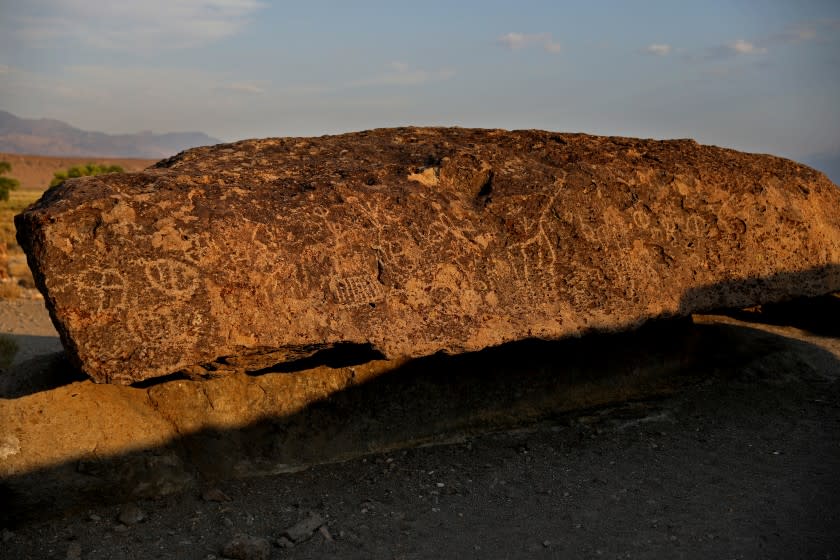Letters to the Editor: Scientists who deface Native American sites act like arrogant colonists

To the editor: The disregard shown toward Native American heritage in your article about the Caltech professor who drilled holes into a sacred Native American petroglyph site is symptomatic of ongoing settler colonial arrogance.
Caltech says it regrets that one of its geoscience professors engaged in sloppy and destructive research at the site near Bishop, Calif. However, the professor who led the vandalism declined any comment, despite the opportunity to apologize.
This incident demonstrates the need to better infuse science with ethical practices. In this case, consultation should have been a central part of the research methodology, not only with the U.S. Bureau of Land Management, but also with the appropriate Native American community.
In failing to practice ethically based science, we marginalize people, damage cultural heritage, fail our students and engage in destructive behavior. A set of ethics of science provides a path leading to a hopeful future. It is not simply academic; it is a sensibility developed through astute observation, experience and contemplation.
We would do well to heed the wisdom of the conservationist Aldo Leopold: "A thing is right when it tends to preserve the integrity, stability, and beauty of the biotic community; it is wrong when it tends otherwise." We need scientists who can guide humanity toward a future that is right.
Paul Faulstich, Claremont
The writer is a professor of environmental analysis at Pitzer College.
..
To the editor: Caltech "regrets" that one of its professor drilled at a sacred petroglyph site, and it agreed to pay about $25,000 to cover the costs of repairing damages.
Caltech knew better. I know better. I've seen lots of petroglyphs and absolutely know you don't go near them.
And it has to pay only $25,000? Tuition alone at Caltech, not including books, fees or housing, is about $56,000 annually. It has an endowment valued at more than $3 billion. It should develop a well-funded program in archaeologic studies and protection, with additional money spent to protect and preserve Native American artifacts.
Caltech blew it and needs to rectify this deliberate destruction of Native American culture.
Wendy Averill, Culver City
..
To the editor: This destruction of ancient sites is sadly a familiar story.
In Australia, the mining company Rio Tinto blew up a 46,000-year-old Aboriginal heritage site in the remote Pilbara region of Western Australia as part of the expansion of an iron mine. This area has the world's largest collection of petroglyphs, including what could be the oldest representation of a human face.
When will history and sacred sites be valued more than short-term profit? It seems that the rocks will have crumbled to dust before that is likely.
We need to protect the past to guide the future.
Dennis Fitzgerald, Box Hill, Australia
This story originally appeared in Los Angeles Times.

